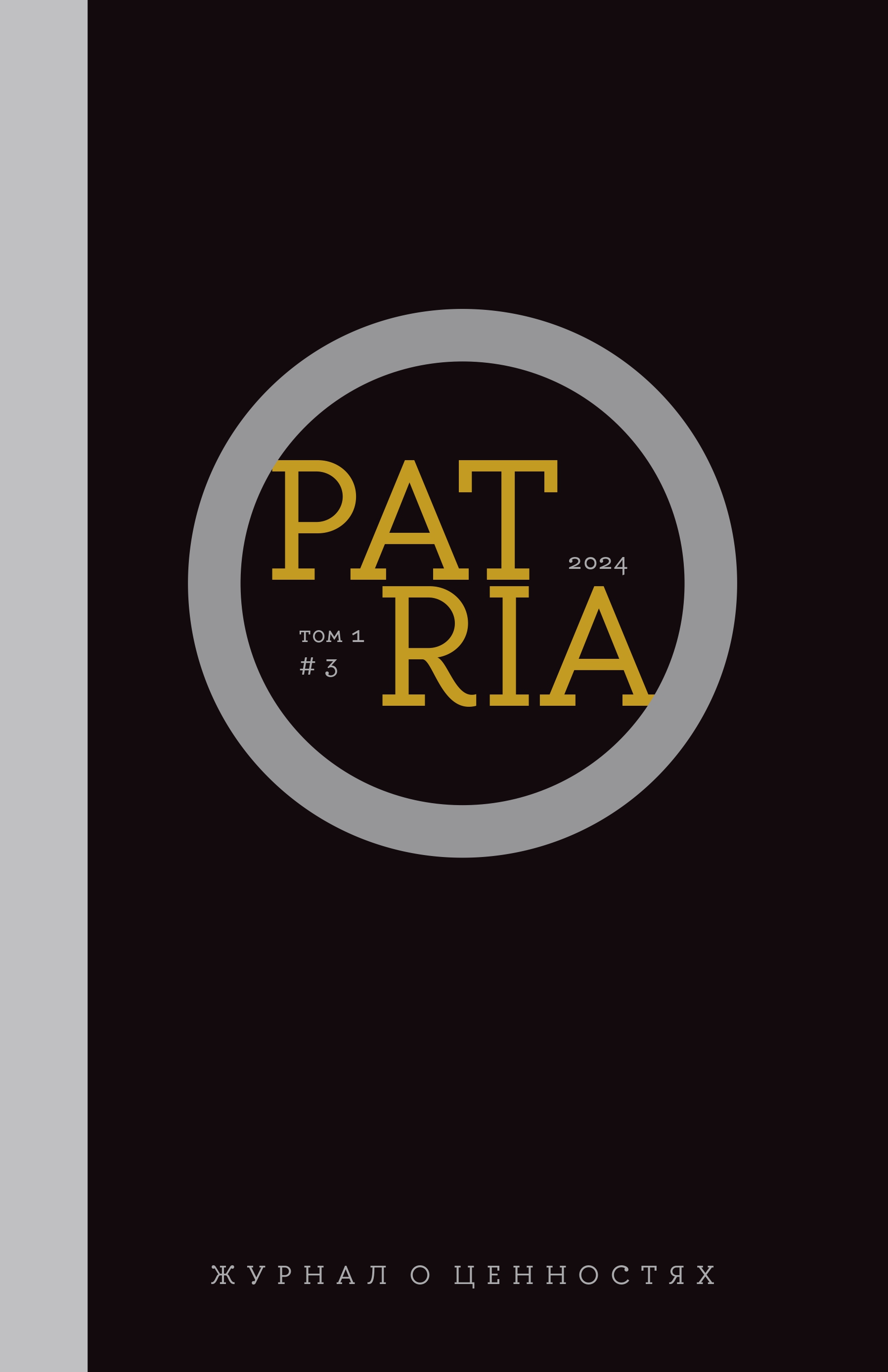-
22
-
12
-
9
-
8
-
7

We are pleased to present the third issue of the journal Patria to our readers. This issue, once again, focuses on traditional values, which is unsurprising given the journal’s primary emphasis.
The research section of the issue opens with an article by Lyudmila Baeva (Astrakhan State University named after V. N. Tatishchev), “Traditional Values: A Concept and Meanings”. Outlining the existing positions on the nature of values, the author explores values within the theoretical framework of existential axiology. Based on this approach, the article develops a revised typology of values and refines the definition of traditional values in contrast to liberal ones. The proposed reinterpretation offers a fresh perspective on the growing clash between liberal and traditional values amidst the civilizational rifts of the modern world.
Ilia Pavlov (HSE University), in his article “The Question of Traditional Russian Values in the Perspective of Ontological Hermeneutics”, presents a philosophical reflection on how the concept of Russian traditional values can be understood. Drawing from Martin Heidegger’s philosophy on the themes of world and being, the author diverges from Heidegger’s focus on death, steering instead toward a phenomenology of the past connected with the value of life. This approach reveals the possibility of conceptualizing Russia as a constellation of historical and spatial perspectives, which, following Leibniz’s ontology, Pavlov interprets as actual perspectives of Russia as a unified reality.
Alexey Maslov (Institute of Asian and African Studies, Lomonosov Moscow State University), in his work “Russia in the East,” provides a detailed examination of Russia’s historical and contemporary relations with the East. The study offers a comprehensive historical overview of Russia’s eastern policies, encompassing both the incorporation of eastern territories into the Russian state and the establishment of relations with Eastern countries. Analyzing modern interactions, particularly with China, the author concludes that successful development of eastern policies requires an acknowledgment of Russia’s cultural uniqueness. Only then can the East be perceived not as “alien” or “similar,” but as a rich diversity of cultures, approaches, and economies with which equal and mutually beneficial dialogue is possible.
In the “Invitation to Discussion” section, we feature Artem Kosmarsky’s (HSE University) article, “The Rejection of the Other and the Catastrophe of Trinitarian Love as the Basic Structure of Modernity”. The author offers a new perspective on contemporary issues in romantic, familial, and sexual relationships, as well as shifts in values and attitudes, challenging the widespread notion that the primary focus of orientation, attraction, and identity is the sexual object. Instead, the article proposes that the fundamental aspect is whether relationships between people are binary or triadic. The concepts of “dyad” — relationships exclusively between two people, excluding a Third — and “triad” — relationships that make space for a Third, whether a child, another beloved, or a word—are introduced. The author demonstrates how, in the 20th and 21st centuries, the dyad has become the basic structure of relationships and worldview across various fields, from literature and art to ethics and politics, and how this is connected to the normalization of divorce and other societal changes.
The reviews and criticism section includes Viktor Martyankov’s (Institute of Philosophy and Law, Ural Branch of the Russian Academy of Sciences) response to Leonid Fishman’s monograph Inequality of Equals: The Concept and Phenomenon of Resentment, published by the HSE University Press. The review thoroughly examines Fishman’s reconstruction of the phenomenon of resentment in both historical and contemporary contexts, as well as his analysis of the causes behind the radicalization of mass resentment mechanisms during the modern era.
Alexander Pavlov



